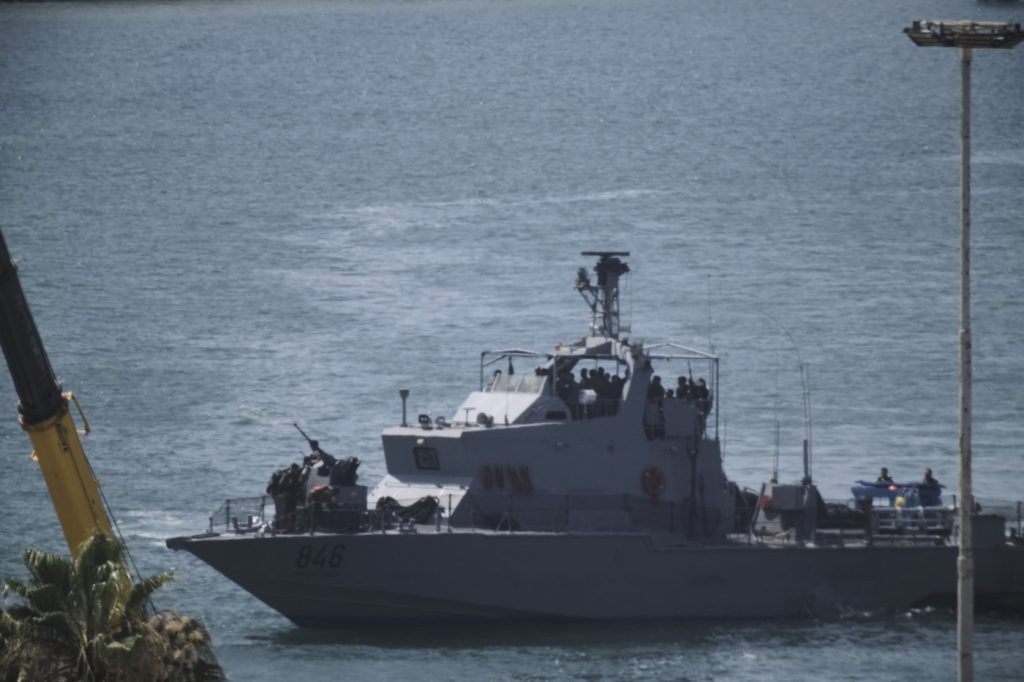Israeli naval forces conducted an early morning raid on Monday, intercepting and seizing a ship en route to Gaza that was carrying international activists, including climate activist Greta Thunberg. The operation, which took place far from Israeli shores, has raised accusations of a breach of international law due to the circumstances surrounding the interception in international waters.
The activists aboard the ship, named the Madleen, stated that their mission was to protest against Israel's ongoing military actions in Gaza and to provide humanitarian aid, including baby formula and food, to the people of Gaza. Following the interception, the activists were detained and were expected to be deported to Israel.
This is not the first instance of Israel halting aid ships bound for Gaza. A notorious incident in 2010 resulted in violence when Israeli commandos boarded a similar aid vessel, leading to the deaths of eight Turkish activists and one Turkish-American. Most subsequent operations to stop Gaza-bound ships have ended with vessels being diverted and crew members detained without significant incident.
Israel contends that the latest ship was set to violate its blockade of Gaza and claims that its actions were in accordance with international law. The Freedom Flotilla Coalition, which organized the Madleen's voyage, asserts that the interception occurred approximately 200 kilometers (124 miles) off the coast of Gaza, a claim that remains unverified independently, as Israeli authorities have not disclosed the exact location of the seizure.
Robbie Sabel, an international law expert and former legal adviser to the Israeli Foreign Ministry, noted that the U.N. Convention on the Law of the Sea typically grants states jurisdiction over waters extending only 12 nautical miles (19 kilometers) from their shores. While states generally lack the right to seize ships in international waters, exceptions exist during times of armed conflict, which Sabel argues applies to Israel's situation with Hamas.
Despite these legal justifications, the legitimacy of Israel's blockade is questioned by many rights groups, which contend that the blockade constitutes unlawful collective punishment against the Palestinian population. Sabel referenced a U.N. report from the 2010 incident that cautioned against attempts to breach a lawful naval blockade, suggesting that those on board such vessels could risk their safety.
Yuval Shany, an expert on international law, stated that if Israel's blockade is deemed "militarily justified" to prevent weapon smuggling, then Israel has the right to intercept vessels intending to breach it. However, Suhad Bishara, from the legal rights group Adalah, argued that Israel had no grounds to act against the Madleen in international waters, as it posed no military threat. Furthermore, Israeli Foreign Ministry spokesperson Oren Marmorstein maintained that all actions taken were in accordance with international law.
The situation is complicated by the status of Gaza, with the U.N. and much of the global community considering it occupied territory following Israel's capture of the area in the 1967 Mideast war. While Israel argues it disengaged from Gaza in 2005, it continues to control the territory's airspace, coastline, and most land borders. Humanitarian organizations, such as Amnesty International, assert that Israel has an obligation as the occupying power to ensure the provision of humanitarian supplies to Palestinians in Gaza, which they claim Israel is obstructing.
Israel argues that it has allowed sufficient humanitarian aid into Gaza and accuses Hamas of misappropriating these supplies. In contrast, U.N. agencies and various humanitarian groups dispute this claim, asserting that there has been no systematic diversion of aid. Critics, including Amnesty International, contend that Israel's policies are contributing to a humanitarian crisis in Gaza, with accusations aimed at Israeli Prime Minister Benjamin Netanyahu regarding the intentional use of starvation tactics as a method of warfare.
Amnesty International's secretary general, Agnès Callamard, condemned Israel’s actions, stating that the interception and blockade of the Madleen, which was on a humanitarian mission, demonstrated a disregard for legal obligations towards civilians in the occupied Gaza Strip. Callamard called for the immediate release of the activists detained during the incident.











